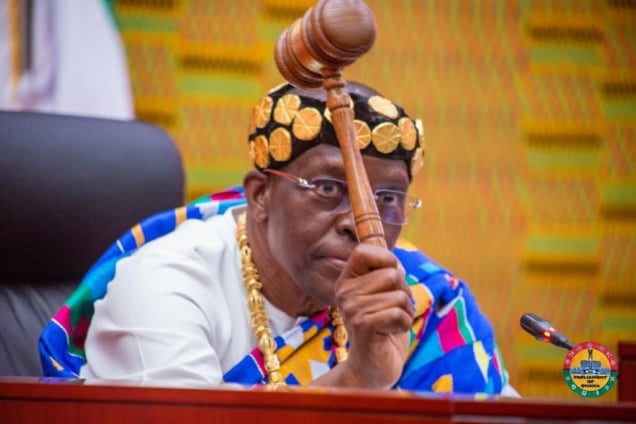The recent developments in the Ghanaian Parliament revolve around a significant ruling from the Supreme Court regarding the Speaker of Parliament, Alban Bagbin. The court issued a stay of execution on Bagbin’s previous decision to declare four parliamentary seats vacant. This ruling was officially communicated to the Legal Department of Parliament on Monday, October 21, and indicates a critical junction in the ongoing political tensions between the Speaker and the opposition party, the New Patriotic Party (NPP). The backdrop of this legal contention is marked by the NPP’s protests against the Speaker’s earlier ruling, which they perceived as an affront to their political representation and power within Parliament.
On Thursday, October 17, the NPP Caucus led by Member of Parliament Alexander Afenyo-Markin made their stance clear by boycotting parliamentary proceedings. Their protest was a direct response to Speaker Bagbin’s ruling, which they felt undermined their authority and representation. This decision to boycott was rooted in their belief that the Speaker’s declaration unjustly affected their party’s majority and political stability in Parliament. By abstaining from parliamentary activities, the NPP aimed to pressure both the Speaker and the wider legislative framework to reconsider the implications of the recent ruling.
In the aftermath of the boycott, the situation escalated, prompting the NPP to seek legal recourse. On October 18, just a day after the boycott began, the Supreme Court responded to an ex parte application filed by Afenyo-Markin. The court’s order for a stay of execution essentially froze the implementation of the Speaker’s ruling, allowing NPP members to possibly return to Parliament without the immediate consequences of the vacant seats. This legal intervention has created a complex scenario where the parliamentary landscape can potentially shift back to favor the NPP, depending on how they choose to proceed post-ruling.
With the Supreme Court’s stay of execution now in effect, the expectation is that the NPP MPs will end their boycott and return to Parliament on Tuesday. The anticipated return of the NPP is seen as a critical moment that may lead to heightened tensions within parliamentary deliberations. Observers and political analysts suggest that this may result in contentious debates over seat allocations and majority control, as the NPP seeks to reassert its prominence in the legislative chamber. The stakes are high as the party navigates this tumultuous political environment influenced by recent judicial decisions.
As the NPP members prepare to return following the Supreme Court’s ruling, there is speculation about how this will impact the balance of power within Parliament. Many political analysts are watching closely to see if the NPP will reclaim their standing effectively or if the conflict with Speaker Bagbin will continue to escalate. The prospects of a showdown over the Majority side of Parliament are significant, with potential implications for legislative processes and political alliances moving forward. The unfolding dynamics surrounding this issue are not merely legislative but are intertwined with the broader political culture in Ghana.
In summary, these events signify an ongoing struggle between power and representation in Ghana’s Parliament, encapsulated by the interactions of the Speaker, legislative parties, and the judicial branch. The Supreme Court’s intervention provides a temporary reprieve for the NPP, illustrating the interplay between law and politics. As the situation develops, it remains crucial for all parties involved to navigate the complexities of democratic governance while addressing the legitimate concerns that have led to this unprecedented legal and political confrontation. The resolution of these tensions will likely set a precedent for future parliamentary governance and judicial relations in Ghana.


